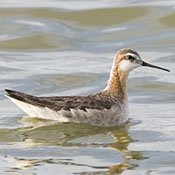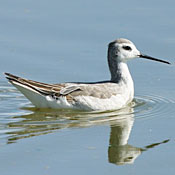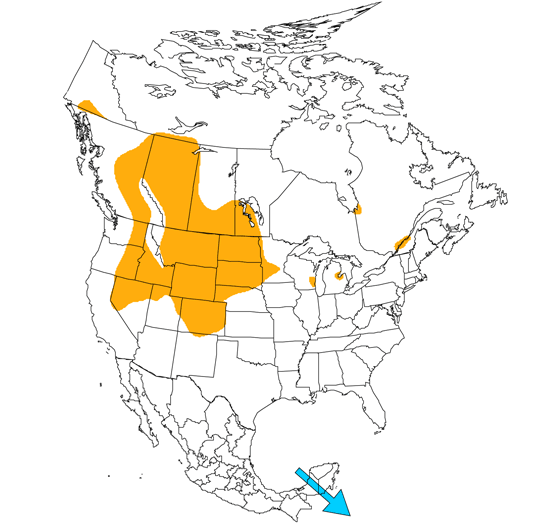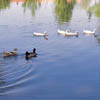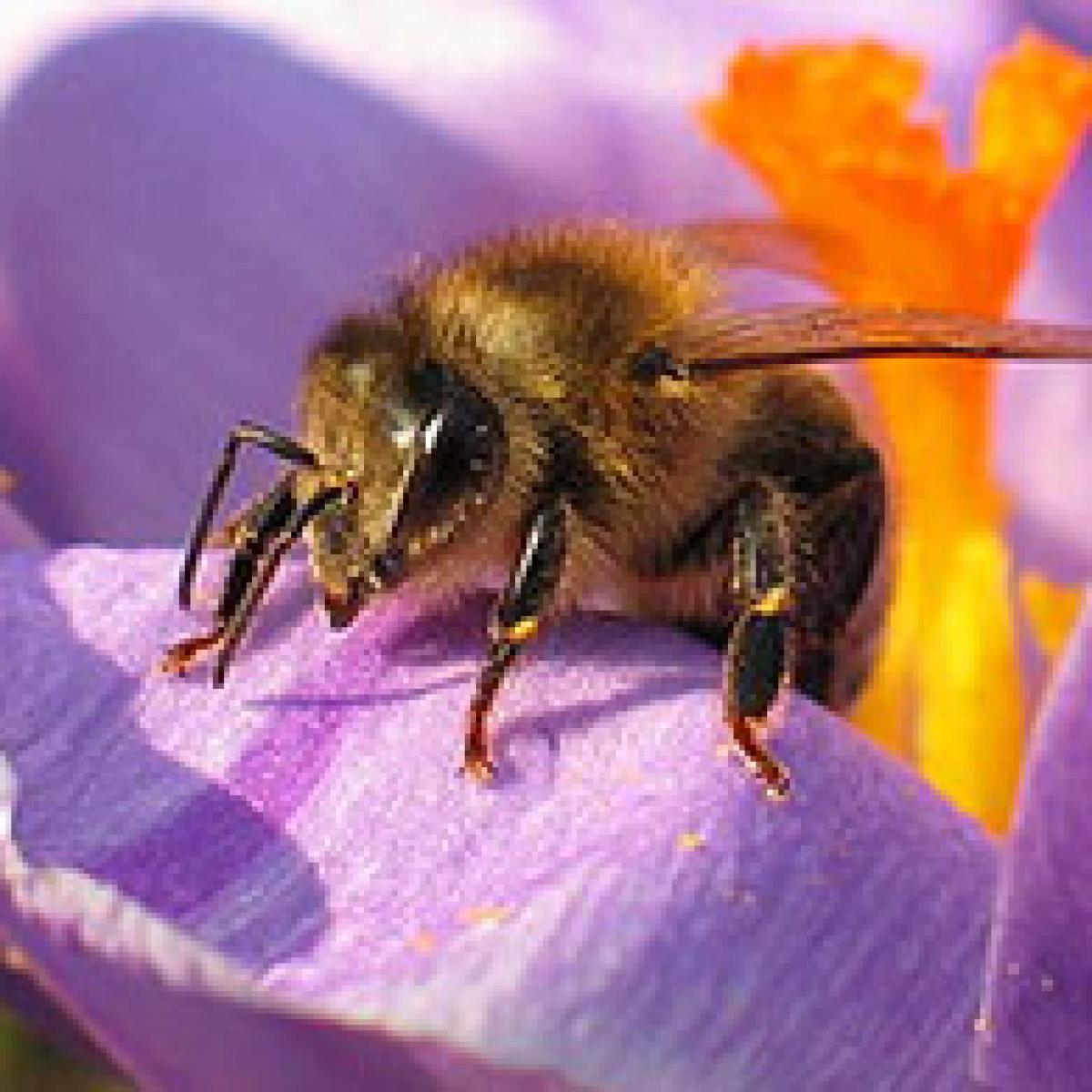Wilson's Phalarope
Phalaropus tricolor

Sandpiper Like
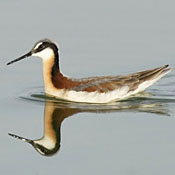
Length: 9 in. (24 cm )
This shorebird is limited to muddy flats, marshy ponds, and wet meadows. It has a peculiar foraging behavior of spinning like a top on the water\'s surface or running in circles on muddy banks picking with its bill at the surface for aquatic insects and crustaceans. Unlike most other bird species, the female in breeding plumage is much more colorful than the male. Also the females fight for males and have more than one mate. The nest is a small platform of grass hidden in low marshy areas. Most of the population winters in the Andes of South America and the lowlands or Argentina.
The four-digit banding code is WIPH.
Bibliographic details:
- Article: Wilson's Phalarope
- Author(s): Dr. Biology
- Publisher: Arizona State University School of Life Sciences Ask A Biologist
- Site name: ASU - Ask A Biologist
- Date published:
- Date accessed:
- Link: https://askabiologist.asu.edu/activities/bird/wilsons-phalarope
APA Style
Dr. Biology. (). Wilson's Phalarope. ASU - Ask A Biologist. Retrieved from https://askabiologist.asu.edu/activities/bird/wilsons-phalarope
Chicago Manual of Style
Dr. Biology. "Wilson's Phalarope". ASU - Ask A Biologist. . https://askabiologist.asu.edu/activities/bird/wilsons-phalarope
Dr. Biology. "Wilson's Phalarope". ASU - Ask A Biologist. . ASU - Ask A Biologist, Web. https://askabiologist.asu.edu/activities/bird/wilsons-phalarope
MLA 2017 Style
Be Part of
Ask A Biologist
By volunteering, or simply sending us feedback on the site. Scientists, teachers, writers, illustrators, and translators are all important to the program. If you are interested in helping with the website we have a Volunteers page to get the process started.

